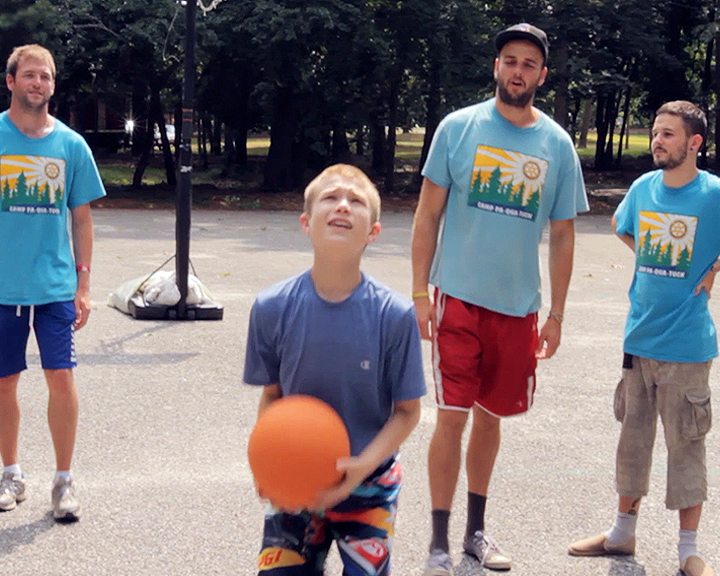For good old-fashioned fun and structured freedom, kids and parents alike look forward to a summer away from home. Kids with special needs (and their parents) are no exception. But for most first-time special needs campers and parents, venturing out into the world at camp raises questions and concerns. From camp policies on attention, to participation in sports, to the potential to make friends, the perfect camp for your special needs child beckons for you to find it. Camp Pa-Qua-Tuck is here to show you how.
Top 3 Benefits of Camp
First, understand the most important reasons for sending your kid to camp:
- Life skill acquisition. For both special needs and typically developing kids, camp fosters two critical character traits: confidence and independence. From conquering challenges without parents, doctors or physical therapists, to doing more things for themselves, to learning to ask friends for help, campers build invaluable problem-solving and communication skills, returning home with the strength to stand on their own two feet.
- Physical activity and exercise. Unlike their peers, disabled or special needs kids rarely participate in sports or recreation. Neglecting the social and health benefits associated with physical activity and exercise puts all sedentary kids at a disadvantage. The active camp lifestyle welcomes immediate benefits including increased social interactions and improved cardiovascular fitness. Combining learning with activity, camp encourages special needs kids to build new friendships and develop or catch up on important skills. Camp helps level the playing field for children of all ability levels.
- Positive role modeling from adults. Camp counselors serve as positive role models who support campers, challenge them to grow and expand the realm of possibilities. Campers thrive from supportive relationships by overcoming adversity, reaching new academic achievement and developing positive identities. The impact of the counselor on the emotional well-being of the camper further encourages healthy relationships between campers and a shared sense of community. The lessons learned pave the path to adulthood.

Different Types of Camps
Next, understand the options. Camps vary in length of stay, philosophy, cost and other key characteristics, creating a range of options to suit almost every possible niche: nonprofit and for-profit; private and run by national organizations; co-ed and single gender; day camp and weekend sessions only; sleep-away for the entire summer. Even kids with special needs can choose from a variety of options:
- Camps accredited by the Americans with Disabilities Act (ADA) with accommodations including wheelchair-accessible ramps.
- Inclusionary (or mainstream) camps integrating groups of special needs and regular needs kids.
- Camps for kids with a specific health issue (diabetes, cancer, speech or hearing impairment, cerebral palsy, etc).
- Camps for kids with many different kinds of special needs including behavioral problems, chronic illnesses and mental or physical impairments.
Take the Journey
Finally, begin the journey towards finding the perfect camp for your kid.
Start with the Basics
The search for the perfect camp begins with the basics: length of stay, cost, age range of campers, location (and proximity to the hospital for kids with medical issues) and camp philosophy.
Add a List of Goals
From transportation and wheelchair accessibility to accommodations for special diet, jot down a list of goals.
Caretaking Priorities
Especially for special needs kids, consider the camp’s approach to caretaking including: staff-to-camper ratio, average age and certification of counselors, background working in special needs, and medical and nursing staff.
Consider the Cost
The cost of camp varies widely, with high-end special needs camps costing thousands for multiple-week sessions. Scholarships from select camps and sponsorships from charitable and fraternal organizations can ease the financial burden. Financial aid from the state is another option to cut the cost.
Gather Your Questions
What do you and your kid want to get out of camp? Does your kid have any friends attending camp? Is your kid comfortable being away from home (and for how long)? These are the questions that point parents in the right direction.
Visit the Camp (Together with Your Kid)
Stop by the camp and talk to the director. Look at the rooms, cabins and overall environment. See how the camp staff responds to requests. Get a feel for the place. Interview counselors and speak to other families. Remember to involve your kid in making the decision.
An Unforgettable Summer
Whatever the special need, there is likely a camp to suit your child. With a little research and an understanding between parent, child and camp staff, everyone can enjoy an unforgettable summer.


